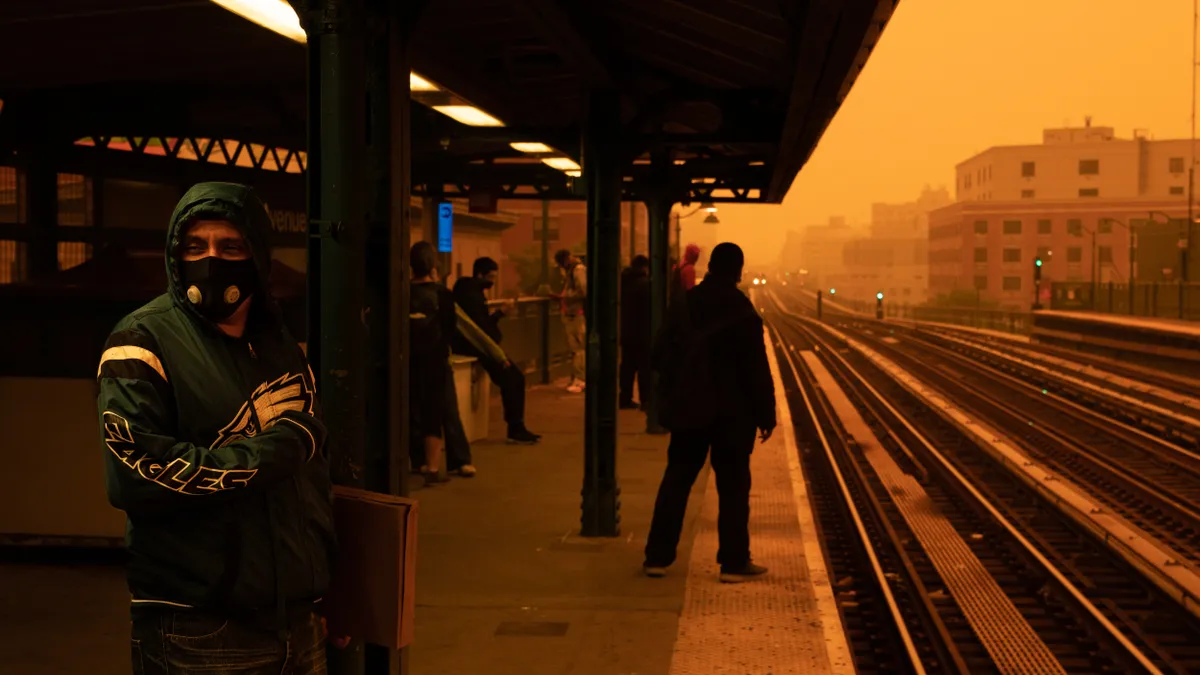Dive Brief:
- The wildfires raging in Canada and sending clouds of haze across U.S. cities are proof of the urgent need for federal standards to protect workers from the effects of climate change, the National Council of Occupational Safety and Health said Thursday.
- The group called for federal standards to protect workers from smoke, heat stress and severe weather events, like wildfires, as well as for paid sick leave.
- “This is not a one-time crisis,” Marcy Goldstein-Gelb, co-executive director of National COSH, said in a news release. “Dangerous pollution in the air we breathe will be a fact of life for years to come, because climate change has greatly increased the occurrence of wildfires and other extreme weather events.”
Dive Insight:
In the U.S., in the absence of a federal standard, only two states have implemented a worker protection law related to wildfires.
The first standards went into effect in July 2019 in California and require employers to limit workers’ exposure when the Air Quality Index for particulate matter with a diameter of 2.5 micrometers or smaller is 151 or higher. Protections include relocating workers to a worksite with better air quality, limiting workers’ time outside and supplying approved respirators.
Other Western states at high risk for wildfires are following California’s lead in adding permanent protections.
Oregon implemented rules on wildfire smoke exposure in the workplace effective July 2022.
The Washington State Department of Labor and Industries in May filed a proposal to add wildfire in the workplace rules to its General Occupational Health Standards. Public hearings are set to start in July.
Correction: A previous version of this article misstated how many states have implemented their own worker safety standards for wildfires. Two states have laws in place to protect workers during those events.














